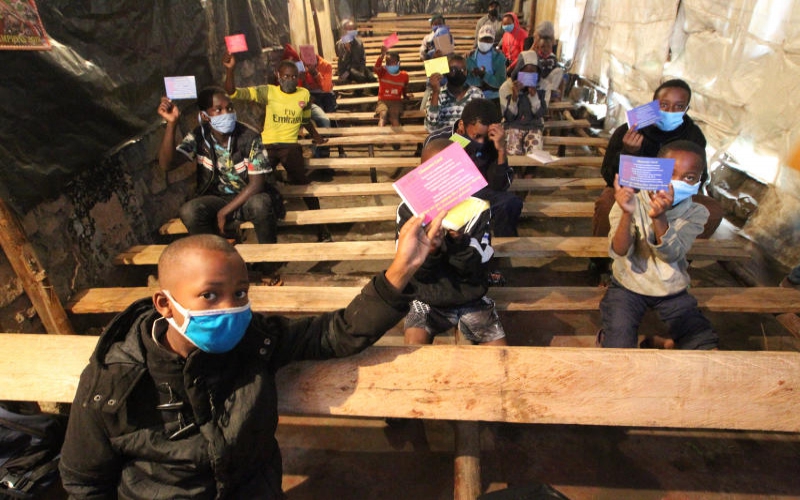×
The Standard e-Paper
Stay Informed, Even Offline

Pupils attending East Africa Character Development Trust lessons at Sports Arena Video hall in Mathare, Nairobi, Kenya. Families are responding to Covid-19 challenges. [Jonah Onyango, Standard]
The government’s policy of 100 per cent transition has ballooned class sizes from an average of 45 to over 60 learners in secondary schools.